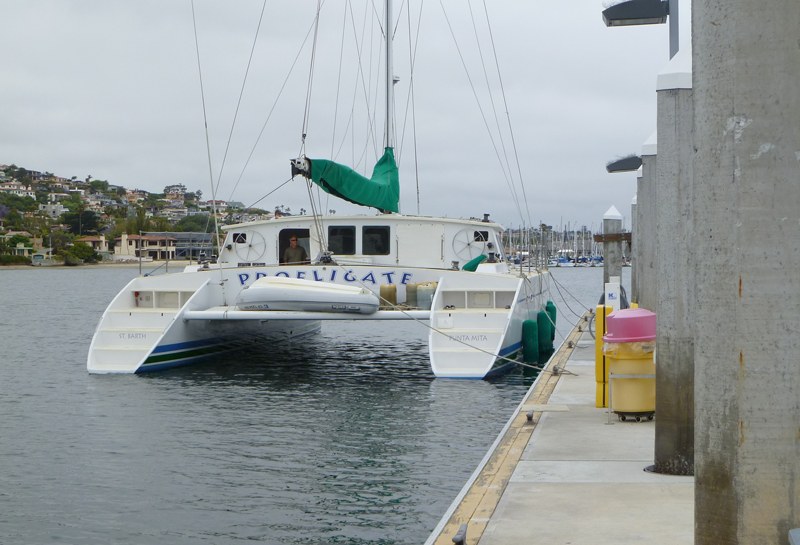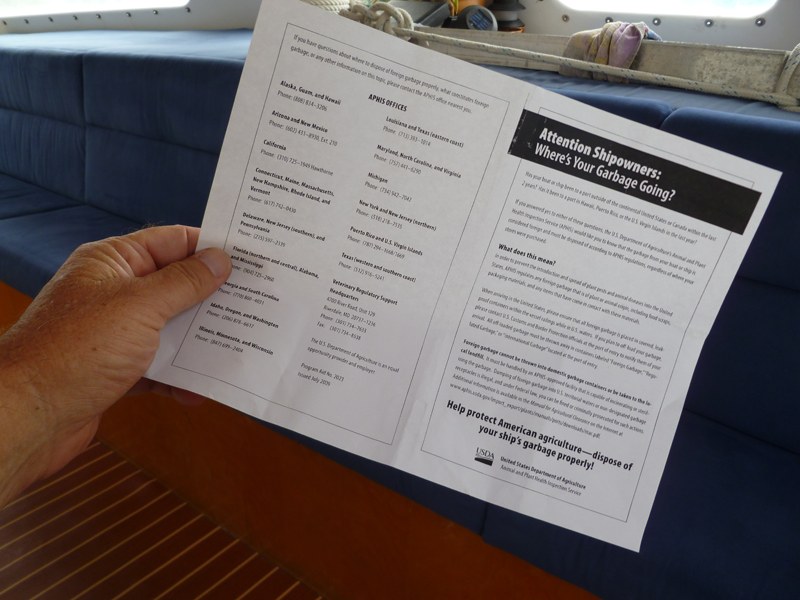
Clarifications on Clearing Into San Diego
We’d like to make three clarifications on last Wednesday’s ‘Lectronic item on Proflgiate clearing into San Diego.
First, Doña de Mallorca is not really a "hard ass" captain. She told us herself.
Second, Profligate made it from La Paz to San Diego in 4.75 days, not 5.75 days. Speed, of course, is largely a function of boat length, and Profligate is 63 feet. So compared to typical cruising boats, it’s like cheating.

©2010 Latitude 38 Media, LLC
Third, and most importantly, we weren’t as clear as we could have been with regard to garbage when clearing into San Diego. As part of their "outreach," the very pleasant and professional folks from Customs told Doña de Mallorca that, 1) Anything "that is of plant or animal origin, including food scraps, packaging materials, and any items that may have come into contact with these materials," needs to be kept in bags separate from all other garbage. That’s because the former must be incinerated or sterilized, which costs taxpayers a lot of money. After being inspected, normal garbage can be thrown into regular garbage bins. What drives Customs nuts are big yachts that show up in San Diego with 40 bags of unseparated garbage. They are thinking about instituting a fee. 2) It’s recommended that certain foods, including apples, raw chicken, raw beef, and avocados, to name just few, be thrown into the sea where it is legal to do so under MARPOL rules, instead of bringing them into San Diego where they have to be confiscated. However, other fresh foods — such as limes, garlic, chilies, packaged deli meats and other stuff — don’t have to be thrown into the sea.
Unfortunately, there was no list on the USDA pamphlet of which foods had to be thrown away and which could be kept. And if you call the California number for the Department of Agriculture’s Animal and Plant Health Inspection Service at (310) 725-1949, as we dutifully did at 3:18 p.m. on a Thursday afternoon, you’re likely to get a message, as we did, that tells you, sorry, nobody is there to help you at that time, but if you’ll leave a number after the beep, they’ll surely get back to you sooner or later. Unfortunately, immediately after the beep there was another message that said they couldn’t take messages. Way to go, USDA Animal and Plant Health Inspection Service!

©2010 Latitude 38 Media, LLC
For the record, these are the rules under the MARPOL Treaty: If you’re 25 miles offshore, the only thing you can’t throw in the ocean is plastic. If you’re 18 to 25 miles offshore, it’s also illegal to dump dunnage and lining materials that float. If you’re 3 to 12 miles offshore, you also can’t dump paper, rags, glass, crockery, metal, food and plastic — unless it’s been ground up to pieces smaller than one square inch. If you’re less than three miles from shore, you can’t throw any of the stuff overboard. And don’t forget the discharging of oil anywhere at sea is illegal.
The Profligate Treaty states that you shouldn’t throw anything overboard but food, and that only in accordance with MARPOL, which means 3 to 12 miles for stuff under one square inch, and 12 to 25 miles for larger pieces.
PHOTO
